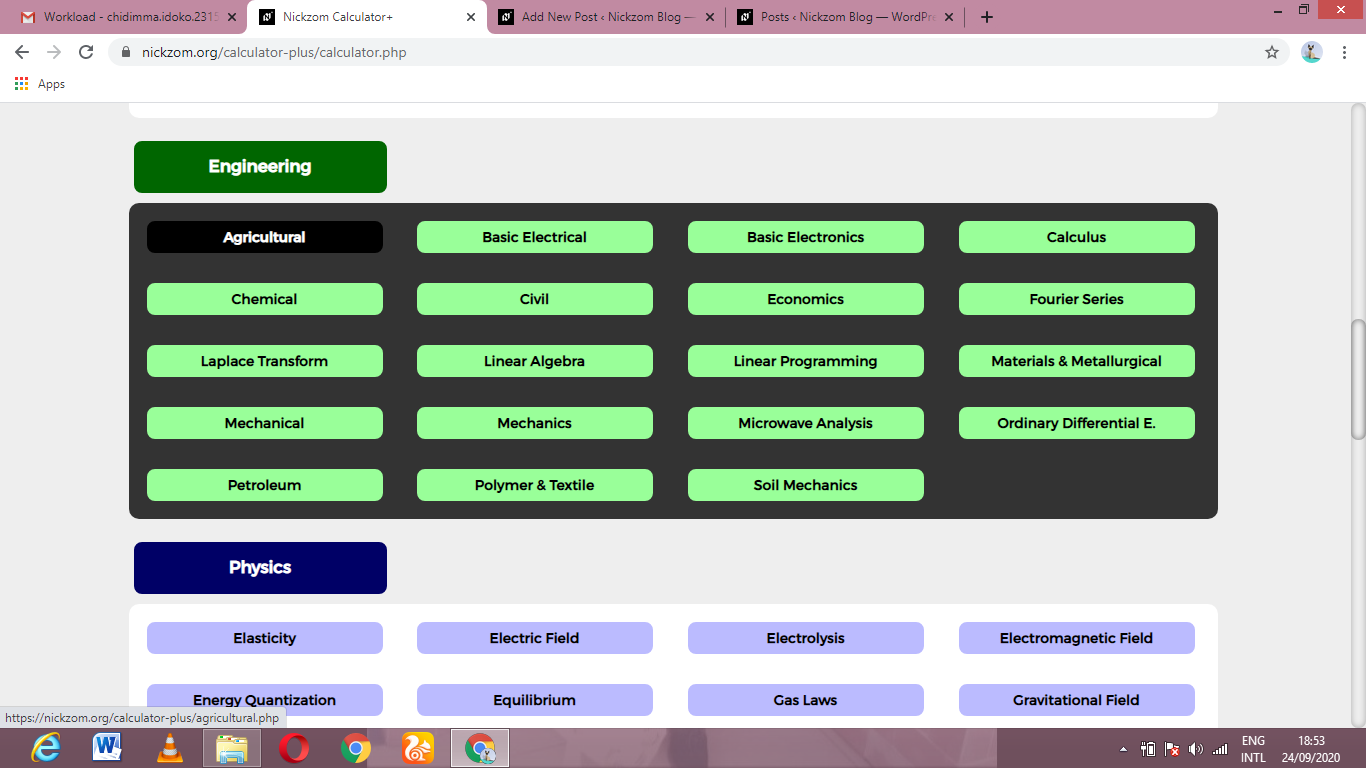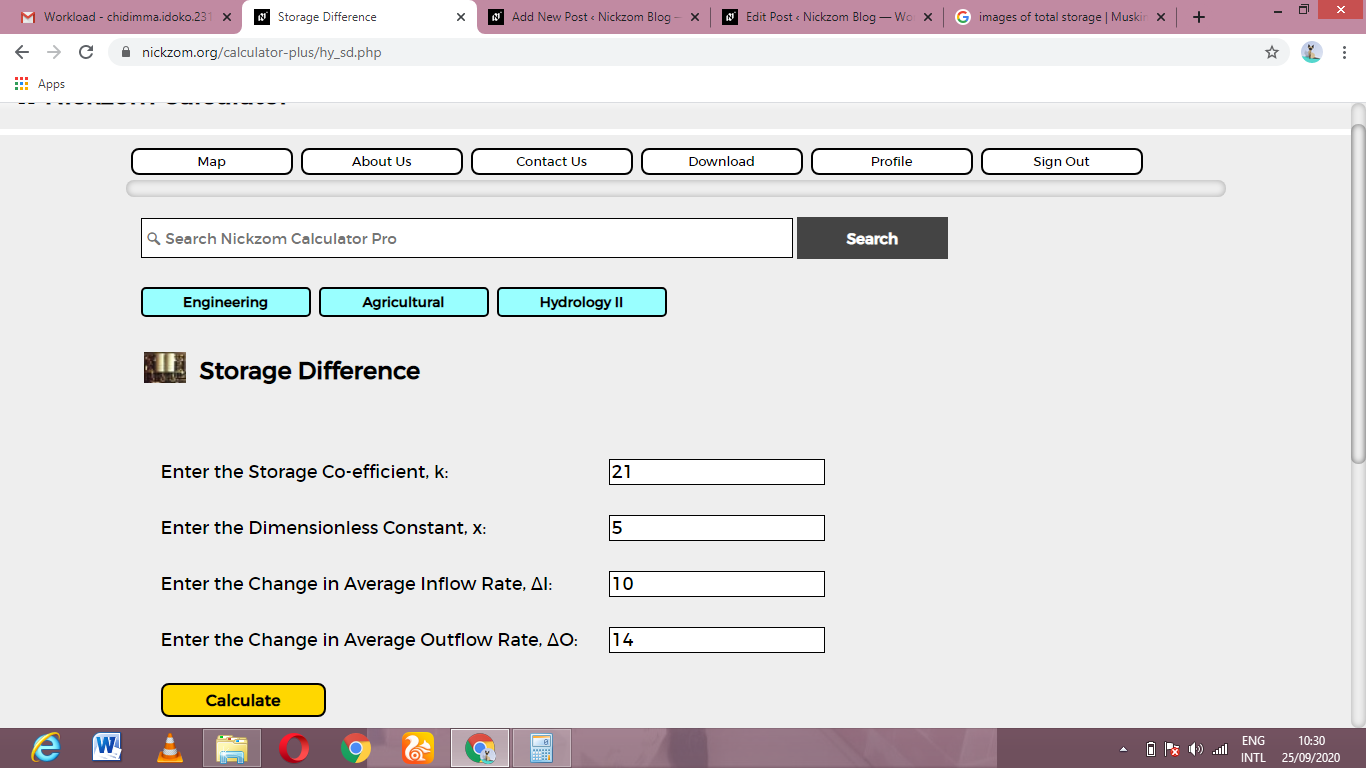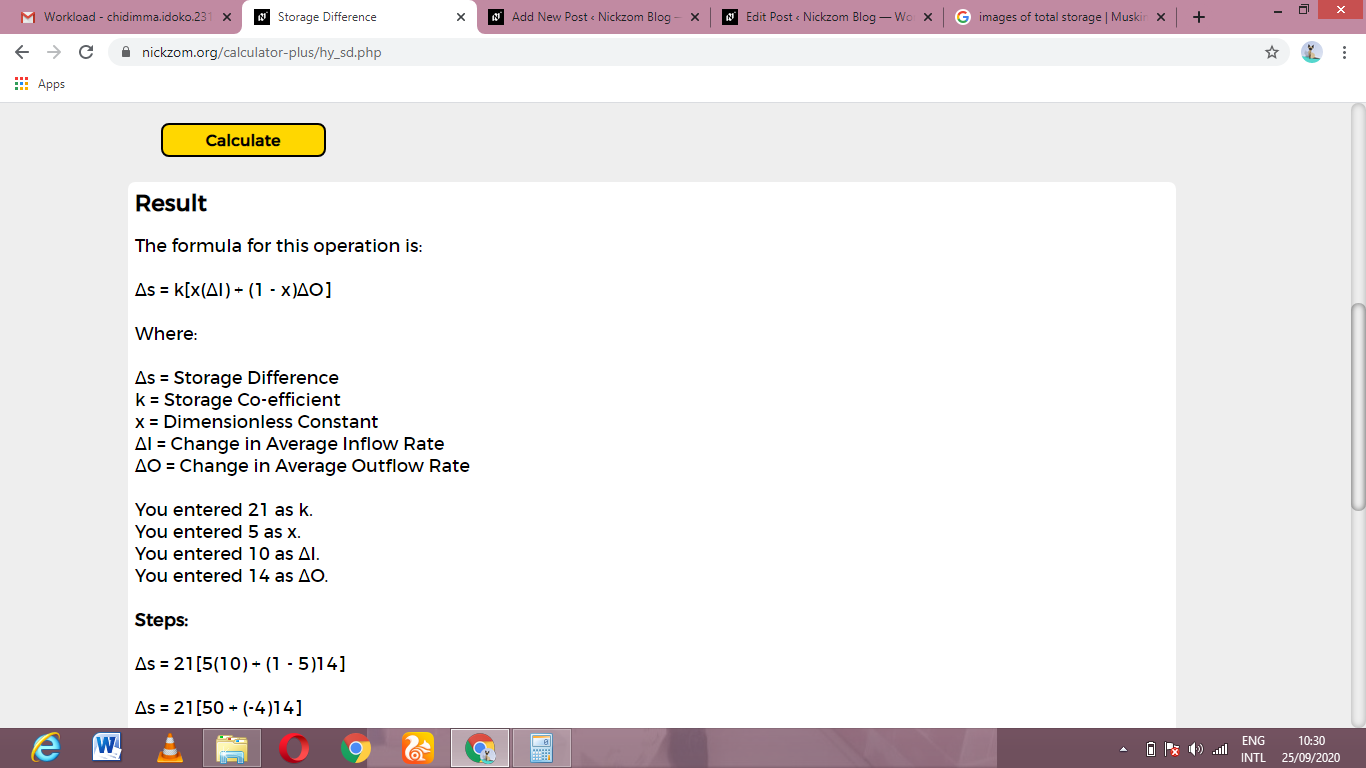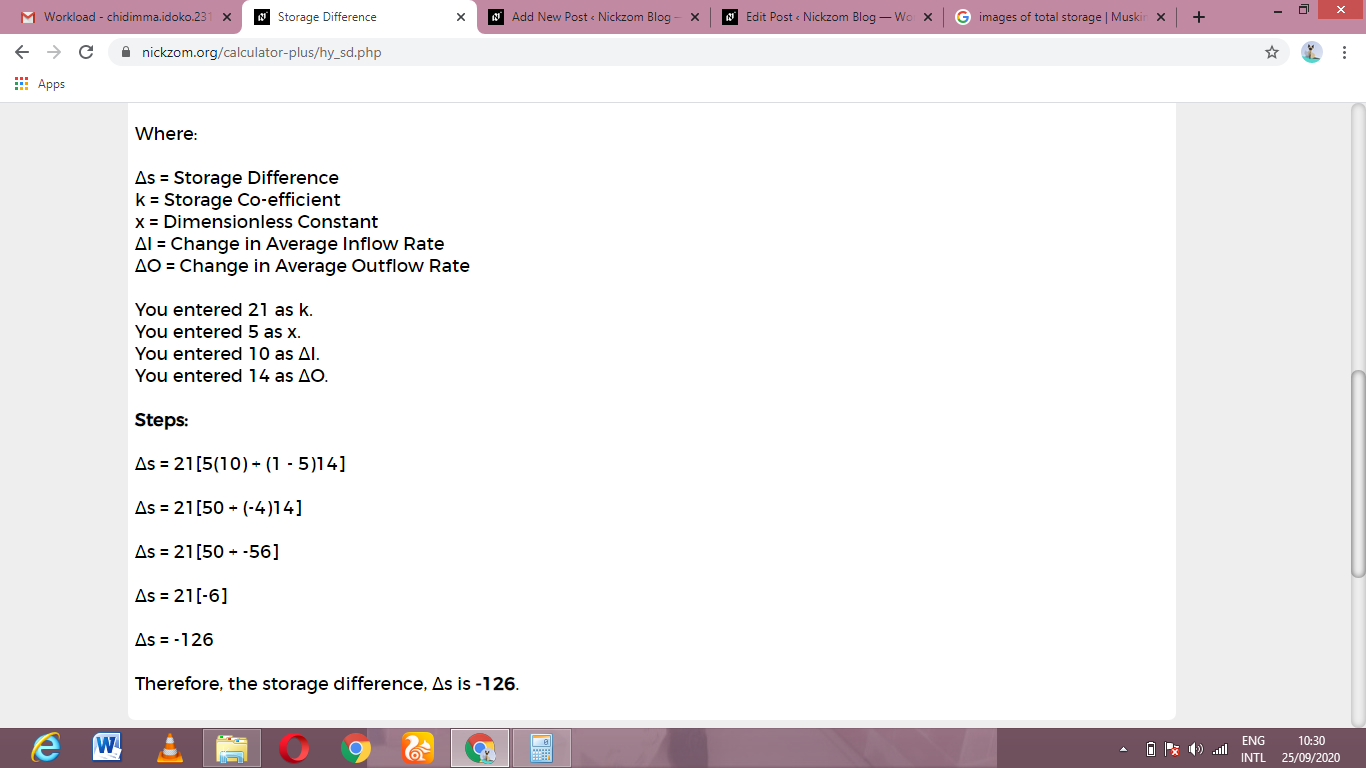To calculate storage difference, four essential parameters are needed, and these parameters are Storage co-efficient (k), Dimensionless constant (x), Change in average inflow rate (ΔI), and Change in average outflow rate (ΔO).
The formula for calculating storage difference:
Δs = k[x(ΔI) + (1 – x)ΔO]
Where:
Δs = Storage Difference
k = Storage Co-efficient
x = Dimensionless Constant
ΔI = Change in Average Inflow Rate
ΔO = Change in Average Outflow Rate
Let’s solve an example;
Find the storage difference when the storage co-efficient is 21, the dimensionless constant is 5, the change in average inflow rate is 10 and the change in average outflow rate is 14.
This implies that;
k = Storage Co-efficient = 21
x = Dimensionless Constant = 5
ΔI = Change in Average Inflow Rate = 10
ΔO = Change in Average Outflow Rate = 14
That is, Δs = k[x(ΔI) + (1 – x)ΔO]
Δs = 21[5(10) + (1 – 5)14]
Δs = 21[50 + (-4)14]
So, Δs = 21[50 + -56]
Δs = 21[-6]
Δs = -126
Therefore, the storage difference is -126.
Read more: How to Calculate and Solve for Total Storage | Hydrology
Calculating for the Storage Co-efficient when the Storage Difference, the Dimensionless Constant, the Change in Average Inflow Rate and the Change in Average Outflow Rate are Given
k = s / [x(ΔI) + (1 – x)ΔO]
Where;
k = Storage Co-efficient
Δs = Storage Difference
x = Dimensionless Constant
ΔI = Change in Average Inflow Rate
ΔO = Change in Average Outflow Rate
Let’s solve an example;
Find the storage co-efficient when the storage difference is 20, the dimensionless constant is 2, the change in average inflow rate is 8, and the change in average outflow rate is 4.
This implies that;
Δs = Storage Difference = 20
x = Dimensionless Constant = 2
ΔI = Change in Average Inflow Rate = 8
ΔO = Change in Average Outflow Rate = 4
k = s / [x(ΔI) + (1 – x)ΔO]
Then, k = 20 / [2(8) + (1 – 2)4]
k = 20 / [16 + (-1)4]
k = 20 / [16 + -4]
So, k = 20 / [-12]
k = -1.67
Therefore, the storage co-efficient is -1.67.
How to Calculate Storage Difference With Nickzom Calculator
Nickzom Calculator – The Calculator Encyclopedia is capable of calculating the storage difference.
To get the answer and workings of the storage difference using the Nickzom Calculator – The Calculator Encyclopedia. First, you need to obtain the app.
You can get this app via any of these means:
Web – https://www.nickzom.org/calculator-plus
To get access to the professional version via web, you need to register and subscribe for NGN 2,000 per annum to have utter access to all functionalities.
You can also try the demo version via https://www.nickzom.org/calculator
Android (Paid) – https://play.google.com/store/apps/details?id=org.nickzom.nickzomcalculator
Android (Free) – https://play.google.com/store/apps/details?id=com.nickzom.nickzomcalculator
Apple (Paid) – https://itunes.apple.com/us/app/nickzom-calculator/id1331162702?mt=8
Once, you have obtained the calculator encyclopedia app, proceed to the Calculator Map, then click on Agricultural under Engineering.
Now, Click on Hydrology II under Agricultural
Now, Click on Storage Difference under Hydrology II
Master Calculations Instantly
Unlock solutions for math, physics, engineering, and chemistry problem with step-by-step clarity. No internet required. Just knowledge at your fingertips, anytime, anywhere.
The screenshot below displays the page or activity to enter your values, to get the answer for the storage difference according to the respective parameters which is the Storage co-efficient (k), Dimensionless constant (x), Change in average inflow rate (ΔI) and Change in average outflow rate (ΔO).
Now, enter the values appropriately and accordingly for the parameters as required by the Storage co-efficient (k) is 21, Dimensionless constant (x) is 5, Change in average inflow rate (ΔI) is 10 and Change in average outflow rate (ΔO) is 14.
Finally, Click on Calculate
As you can see from the screenshot above, Nickzom Calculator– The Calculator Encyclopedia solves for the storage difference and presents the formula, workings and steps too.










